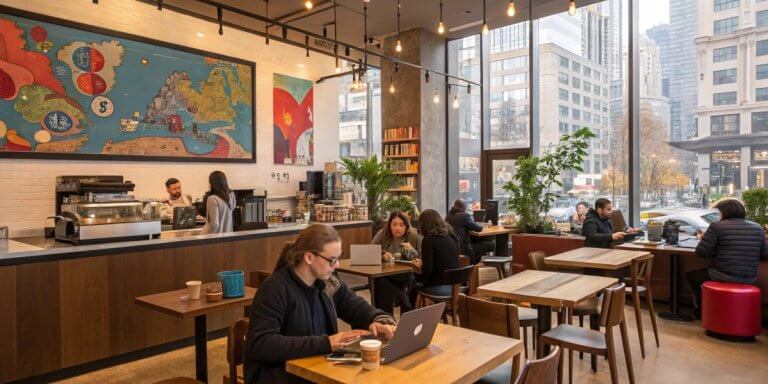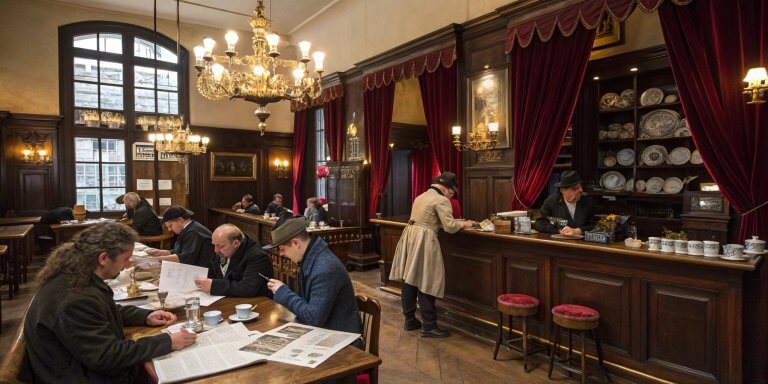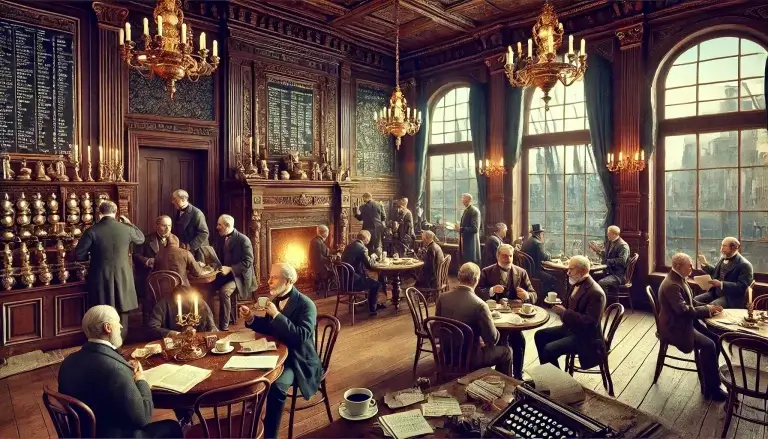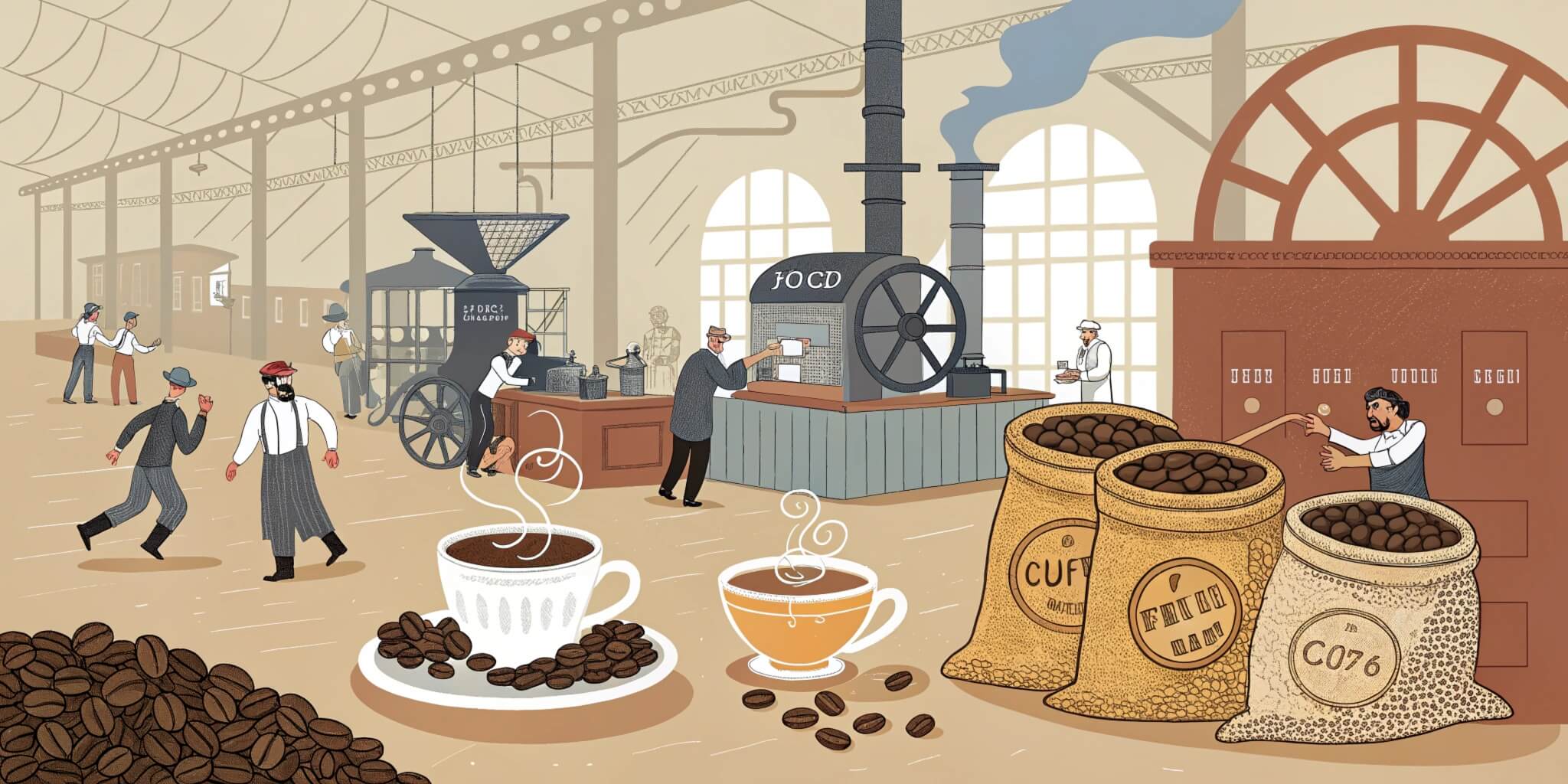
When we think of the Industrial Revolution, we often picture factories, machines, and steam engines. However, more attention must be paid to one key ingredient in this transformation: coffee. During the 18th and 19th centuries, coffee became essential to the rise of industry and modern work culture. It wasn’t just a beverage but a productivity tool that kept workers alert and energized as they adjusted to the long hours and grueling schedules of industrial life. Let’s explore how coffee fueled this rapid change period and reshaped how people worked.
The Birthplace of Modern Work Culture
Coffeehouses first emerged in Europe in the 17th century, but by the Industrial Revolution, they had become central to social and business life. These ‘penny universities,’ as they were often called, were not just places for a cup of coffee, but also for engaging in intellectual debate about the price of a cup of coffee. They fostered a sense of community and were crucial hubs for innovation and business, stimulating intellectual discussions and shaping the course of history.
Coffeehouses became meeting spots for merchants, traders, and politicians in London. Lloyd’s Coffee House, for example, eventually became Lloyd’s of London, one of the world’s leading insurance companies. Similarly, the London Stock Exchange was born out of another coffeehouse. This highlights how coffeehouses weren’t just places for casual chat but integral to developing the economy and work culture.
Coffee as a Productivity Booster
The rise of factories during the Industrial Revolution meant that workers had to adjust to long, exhausting shifts. Unlike farming, where work followed the natural daylight hours, factory labor required people to work late into the night. Coffee became the go-to solution for workers who needed to stay alert and productive during these extended shifts.
Before coffee, many workers relied on alcohol, particularly beer, to get through the day. Beer soup was a typical breakfast for many. But alcohol made workers sluggish, reducing their productivity. As coffee became more available, it provided a much-needed alternative. Its stimulating effects let people stay focused and energized, helping factories run more efficiently. However, it’s important to note that excessive coffee consumption also has its downsides, leading to health issues and even addiction in some cases. This shift from beer to coffee was a turning point in labor productivity during the Industrial Revolution.
The Birth of the Coffee Break
One of the lasting impacts of coffee on work culture is the coffee break. While taking breaks during work isn’t new, introducing short, frequent coffee breaks became widespread during the Industrial Revolution. These breaks gave workers time to rest and recharge with coffee, helping maintain their energy levels and morale.
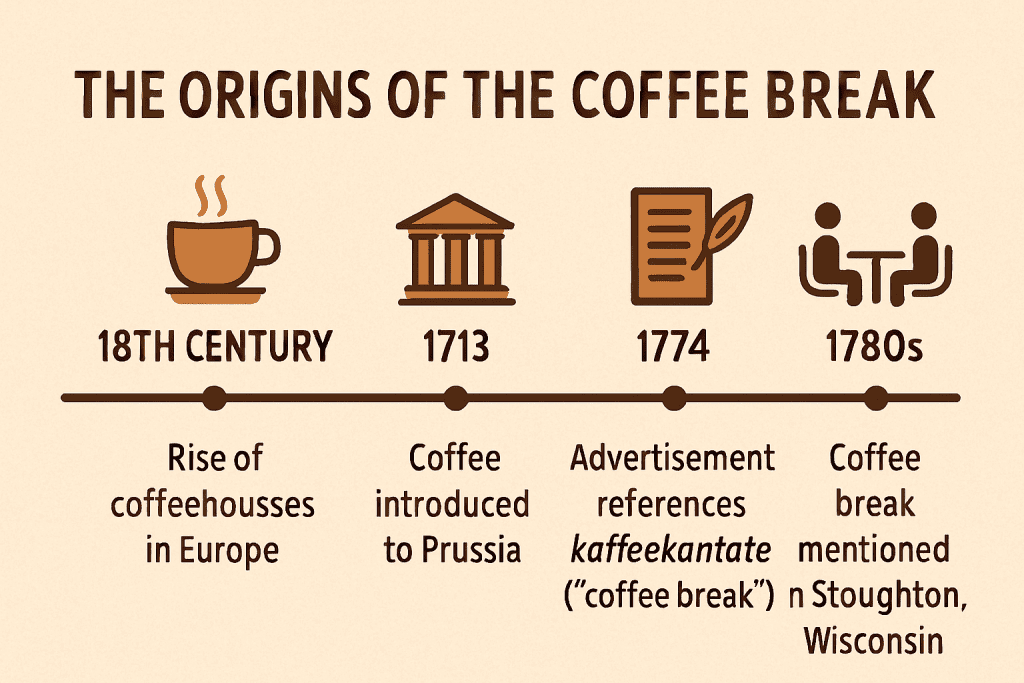
From Penny Universities to Factory Floors
In some factories, coffee breaks became essential to the workday. They allowed workers to socialize, share ideas, and even problem-solve, which not only contributed to better productivity but also fostered a sense of camaraderie among workers. This sense of belonging and shared purpose was a significant aspect of the coffee break culture.
The coffee break has since become a standard part of modern work culture, proving how significant this simple ritual became in shaping how we work.
Coffee and the Rise of Consumer Culture
The Industrial Revolution didn’t just change how people worked and created a consumer culture, and coffee was a big part of that. As factories produced goods faster and cheaper, more people had disposable income. Once considered a luxury, coffee became accessible to the growing middle class. Drinking coffee became a symbol of modernity and progress, and coffeehouses became fashionable places to see and be seen.
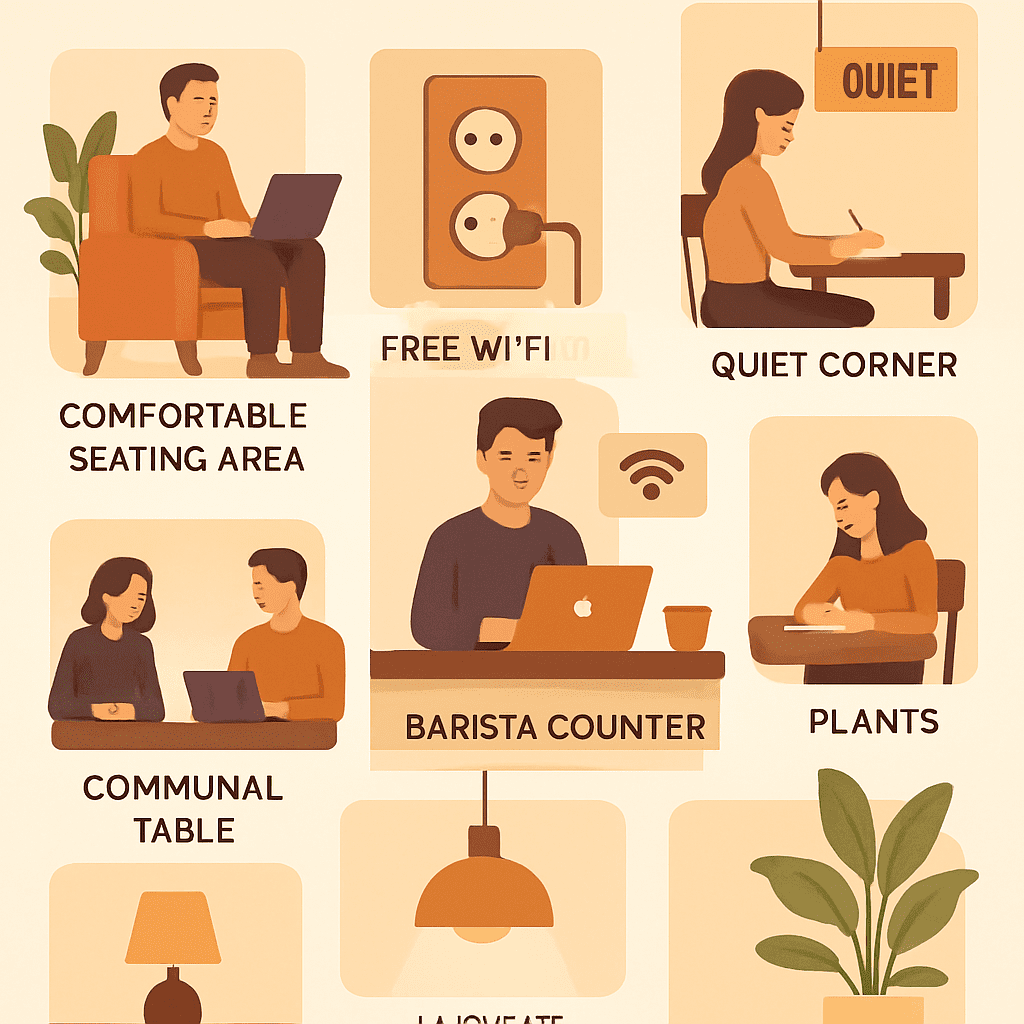
How Coffeehouses Shaped Workplace Focus
Coffeehouses helped fuel a new culture of consumption as they became popular venues for people to discuss new products, ideas, and trends. This shift toward consumerism, driven partly by coffee, laid the groundwork for today’s modern consumer culture. It’s a culture that many of us are a part of, whether we’re discussing the latest tech gadgets or fashion trends over a cup of coffee.
The Global Coffee Trade and Industrialization
As coffee became more popular in Europe, the demand for it skyrocketed. This led to the expansion of the global coffee trade, with plantations being established in colonies in Africa, Asia, and Latin America. Brazil, in particular, became a significant player in the coffee market, and by the mid-19th century, it was the world’s largest coffee producer.
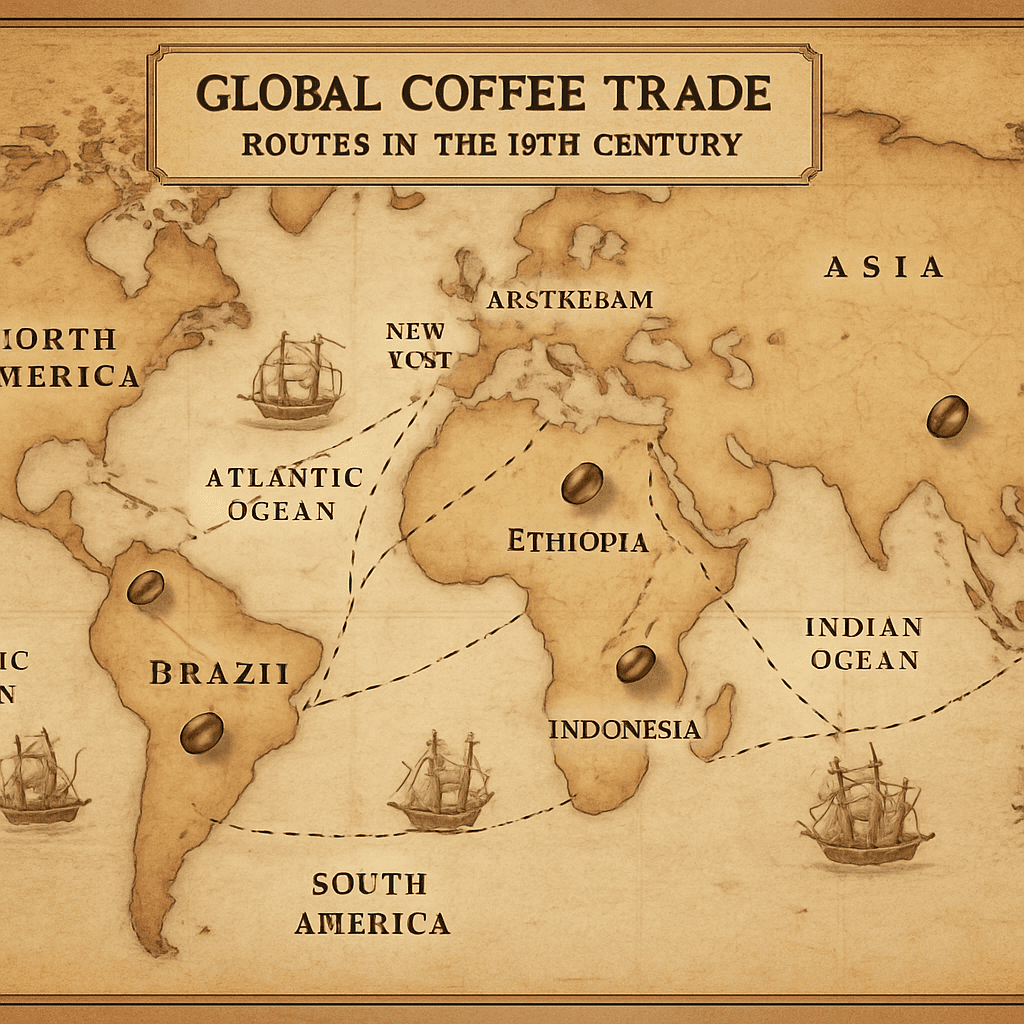
Mapping 19th-Century Coffee Routes
The global coffee trade stimulated economies and helped fuel the Industrial Revolution by creating new trade routes and networks. Coffee’s role as a commodity influenced international relations, with countries competing to control coffee-producing regions. This demand for coffee also influenced technological advancements in shipping and transportation, essential to getting coffee from plantations to European markets.
Coffeehouses and Intellectual Movements
In addition to fueling factory workers, coffee played a significant role in intellectual and political movements. During the Industrial Revolution, coffeehouses became centers for debate, discussion, and innovation. In England, scientists like Isaac Newton and intellectuals like Jonathan Swift were known to frequent coffeehouses, using them as spaces for brainstorming and exchanging ideas.
In France, coffeehouses were hotbeds for revolutionary thinking. Many ideas that led to the French Revolution were born in these establishments, where philosophers and political thinkers discussed equality, liberty, and government reform. With its stimulating effects, coffee helped fuel the intellectual energy needed for these critical conversations. Coffee not only kept the participants awake and alert but also fostered an environment conducive to deep, thought-provoking discussions, making it a catalyst for social change.
Coffee’s Legacy in Modern Work Culture
Today, coffee is still an essential part of work culture. From office coffee machines to coffee breaks, imagining a workday with it is easier. The Industrial Revolution may have ended, but coffee’s influence on productivity, work habits, and social interaction has endured. The coffee break has become institutionalized, with many companies recognizing the importance of giving employees time to rest and recharge.
Coffee’s role as a stimulant continues to be a critical factor in how people approach work. Whether fueling late-night study sessions or helping people stay focused during long meetings, coffee remains a trusted tool for productivity in modern work environments.
Conclusion
The Industrial Revolution transformed how people lived and worked, and coffee was a crucial part of that transformation. It helped workers stay alert and productive during long factory shifts, fostered a new culture of consumption, and became a central feature of European intellectual and political life. Today, coffee continues to shape how we work, making it one of the most essential beverages in modern history.
Whether taking a quick coffee break or sipping a latte in a bustling café, remember that coffee’s legacy as the fuel of industry and innovation is still alive and well.


